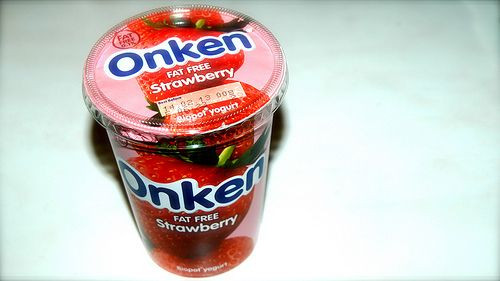Probiotics During Pregnancy May Lower Allergy Risk In Newborns, But Doesn't Impact Risk For Asthma

Owing to a strengthened immune system, babies whose mothers took probiotic supplements during their pregnancy face lower risks of developing allergies, according to new analyses of existing data. However, tests for asthma, a similar immune system response, showed no change in risk from supplement use.
Many doctors currently take no stance on advising for or against the use of probiotics during pregnancy; however, the new analyses offer encouraging evidence that supports their benefits, according to senior author of the study, Dr. Eric Forno, of Children’s Hospital of Pittsburgh. Babies exposed to probiotics in the womb often developed strong immune systems in their early years, a quality that Forno says helps fight off allergies.
Probiotics are, in essence, “good bacteria.” Around 60 to 70 percent of a person’s immune system resides in her intestines, and during pregnancy, that system works even harder. Although probiotics haven’t been proven to offer causal benefits to a person’s immune system, the presence of live good bacteria among the intestines' normal residents is often considered a strong defense against pathogens. Consuming yogurt and yeast products during pregnancy, for instance, may help a newborn fight infection early in life and possibly even later.
To investigate these potential benefits, Forno and his team analyzed the results of 25 trials of supplements given during pregnancy or within the first year of a child's life, Reuters reports. Mothers were given either a placebo or probiotic supplement once a day or more for several months to a year. Later, researchers asked the mothers if the child displayed symptoms of asthma, such as coughing or wheezing, or if they had developed any allergies, such as to peanuts or pollen.
According to their meta-analysis, the team found that babies given probiotics in utero were 12 percent less likely to have developed allergies. Babies who began consuming the probiotic supplement after birth displayed no change in allergy risk. And, probiotics did not impact rates of asthma symptoms either, a fact that one researcher says relates to the child’s age.
"It must be noted though that only a few of the studies followed subjects beyond age five and diagnosis of asthma is not clear under this age,” Mimi Tang, director of the allergy and immunology department at Royal Children's Hospital, told Reuters Health, “so most of the studies are really only reporting on wheezing episodes which may not necessarily be asthma.”
Allergy findings may have salience in the “hygiene hypothesis,” Forno points out, which states that industrialized countries will see greater rates of infection and immune system deficiencies because babies who grow up in such clean environments never fully develop their ability to fight infection.
Forno hopes that future studies involving probiotics can change the questions that people ask from ones of existence to ones of effectiveness. Popular probiotics among consumers include yogurt, sauerkraut, miso soup, soft cheeses, and certain types of milk.
"The theory is that such exposures in early life helped our immune system to learn how to ‘self regulate' and recognize what to fight and what not to," he told Reuters Health. "Our hope is that with the results from our study, researchers will move on from trying to determine ‘if’ probiotics help prevent allergies, and into ‘how' or what the best approach may be."
Source: Elazab N, Mendy A, Gasana J. Probiotic Adminstration in Early Life, Atopy, and Asthma: A Meta-analysis of Clinical Trials. Pediatrics. 2013.



























